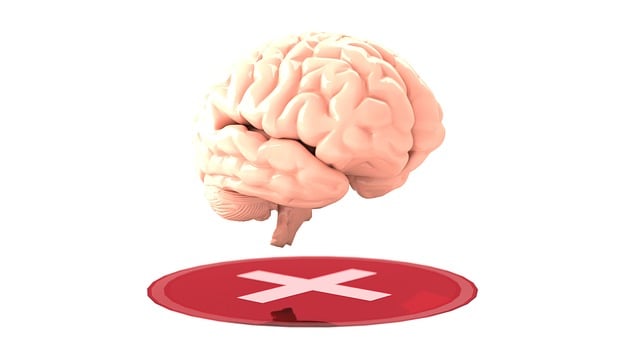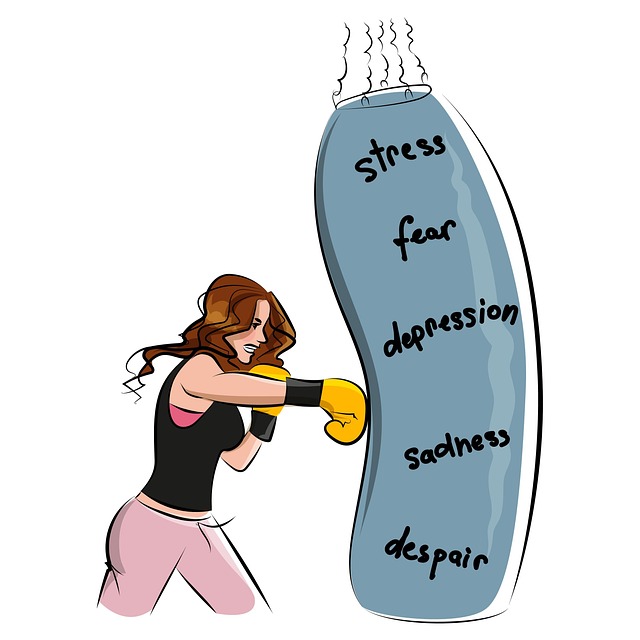Parker Mental Health Evaluations Therapy is a comprehensive, evidence-based approach to risk assessment and harm minimization in mental health care. By providing detailed client insights, therapists can design personalized stress reduction strategies and create tailored plans for emotional well-being. This method incorporates advanced techniques to understand thought processes, behaviors, and triggers, empowering individuals with healthier coping mechanisms. Harm minimization planning focuses on proactive measures to mitigate risks, enhancing long-term resilience. Ethical considerations prioritize client privacy, confidentiality, and empowerment while therapists play a vital role in mental illness stigma reduction. This holistic strategy, supported by scientific research, ensures personalized interventions for improved self-esteem, coping skills, and overall mental wellness.
Risk assessment and harm minimization planning are essential cornerstones of safe and effective therapy. This comprehensive guide explores critical components of risk management, focusing on techniques used in Parker Mental Health Evaluations to identify potential risks within therapeutic settings. We delve into evidence-based strategies for clinical interventions, ethical considerations guiding therapists, and the implementation of best practices for accurate risk assessment. By understanding these principles, mental health professionals can ensure safer environments and more successful outcomes for their clients.
- Understanding Risk Assessment: A Cornerstone of Safe Therapy
- Parker Mental Health Evaluations: Unlocking Comprehensive Risk Identification
- Harm Minimization Planning: Strategies for Clinical Interventions
- Ethical Considerations in Risk Management for Therapists
- Implementing Evidence-Based Practices for Effective Risk Assessment
Understanding Risk Assessment: A Cornerstone of Safe Therapy

Risk assessment is a fundamental process in the field of mental health therapy, serving as a cornerstone for ensuring safe and effective treatment. It involves meticulously evaluating potential hazards and risks associated with an individual’s mental health status, therapeutic interventions, and the broader environment. By conducting thorough Parker Mental Health Evaluations, therapists can gain valuable insights into their clients’ unique circumstances, predispositions, and potential triggers. This enables them to tailor stress reduction methods and develop personalized harm minimization plans.
Incorporating risk assessment into therapy not only benefits individual clients but also has implications for Mental Health Policy Analysis and Advocacy. By understanding the risks involved, mental health professionals can contribute to policy development, ensuring that practices are evidence-based and aligned with current research in the field. This proactive approach promotes a culture of safety, fosters better patient outcomes, and strengthens the overall mental health care system.
Parker Mental Health Evaluations: Unlocking Comprehensive Risk Identification

Parker Mental Health Evaluations offer a powerful tool for identifying and managing risks related to mental health concerns. These comprehensive assessments go beyond surface-level symptoms, delving into an individual’s emotional landscape to uncover potential hazards that may hinder their overall well-being. By employing sophisticated techniques, therapists can gain valuable insights into clients’ thought processes, behaviors, and triggers, enabling them to tailor effective therapy strategies.
This process involves meticulous analysis of various factors, including mood management skills, emotional regulation mechanisms, and the impact of past traumas or stressors. Through such in-depth evaluations, mental health professionals can proactively develop harm minimization plans. By addressing these issues head-on, individuals are empowered to cultivate healthier coping mechanisms, enhancing their ability to navigate life’s challenges while fostering improved emotional well-being.
Harm Minimization Planning: Strategies for Clinical Interventions

Harm Minimization Planning plays a pivotal role in clinical interventions aimed at mitigating potential risks and promoting positive outcomes for individuals seeking mental health support, such as those undergoing Parker Mental Health Evaluations. This strategic approach involves identifying high-risk situations and developing proactive measures to lessen their impact. By integrating techniques like Conflict Resolution Techniques, professionals can equip clients with effective coping Skills Development tools, enabling them to navigate challenging scenarios constructively.
The process encompasses providing Crisis Intervention Guidance tailored to individual needs. Through these strategies, mental health practitioners empower individuals to anticipate potential triggers, develop adaptive responses, and access support systems promptly. This proactive harm minimization approach not only safeguards client well-being during therapy but also equips them with valuable tools for long-term resilience, fostering a safer and more supportive therapeutic environment.
Ethical Considerations in Risk Management for Therapists

In the realm of therapy and risk assessment, ethical considerations are paramount to ensure client safety and well-being. Therapists must navigate complex scenarios while upholding professional standards, especially when dealing with vulnerable individuals seeking mental health support through Parker Mental Health Evaluations Therapy. One crucial aspect is balancing thorough risk assessments with respect for client privacy and confidentiality. This involves implementing robust safety plans without intruding on personal boundaries, fostering a safe space where clients feel empowered to share their struggles openly.
Furthermore, therapists play a vital role in Mental Illness Stigma Reduction Efforts, which are integral to effective harm minimization planning. By promoting self-care practices and emphasizing Mood Management techniques, therapists can empower clients to navigate challenges and make informed decisions about their mental health. Ethical risk management involves educating clients about potential risks and benefits, ensuring they understand their rights and responsibilities, thereby fostering a collaborative environment conducive to healing and growth.
Implementing Evidence-Based Practices for Effective Risk Assessment

Implementing evidence-based practices is paramount for conducting effective risk assessments and developing harm minimization plans. By relying on scientific research and clinical expertise, mental health professionals can make informed decisions tailored to each client’s unique needs. This approach ensures that interventions are not only safe but also promote positive outcomes, such as self-esteem improvement and coping skills development. For instance, Parker Mental Health Evaluations Therapy integrates evidence-based strategies to accurately assess risks and design comprehensive treatment plans.
The process begins with thorough assessments that consider individual factors contributing to risk. These evaluations go beyond surface-level observations, delving into the client’s history, personal experiences, and current mental wellness. Through this meticulous approach, professionals can identify hidden vulnerabilities and develop targeted interventions. Additionally, incorporating feedback from clients and integrating them into the therapy process fosters a sense of ownership, enhancing their ability to manage risks effectively. This holistic strategy, combined with regular monitoring, ensures that individuals receive the best support possible on their journey towards mental wellness, as evidenced by the success of many Mental Wellness Podcast Series productions.
Risk assessment and harm minimization planning are essential components of safe and effective therapy. By understanding the importance of these processes, therapists can employ evidence-based practices such as Parker Mental Health Evaluations to identify potential risks comprehensively. Implementing strategic interventions and considering ethical guidelines ensures a therapeutic environment that prioritizes client safety. Through continuous evaluation and adaptation, therapists can effectively manage risks, fostering positive outcomes in treatment.










